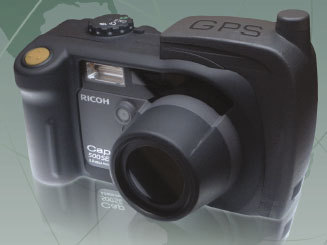Making predictions about the future of technology is one of the easiest things to do. Unlike astrology, palmistry, election polling, technical analysis of the stock market and other assorted hocus-pocus, tech punditry doesn't even require the pretense of intelligence

2 Google Android: Like the iPhone in '07, Google could change the mobile phone industry in '08. But Google's approach is different. They don't want to make their own handset; just hope to put their software and search onto any device that claims to be a mobile phone. The 'platform' is codenamed Android and will most likely transform the generally poor quality of software on low-end mobile devices.
 3 Polymer Screens: Not much point having fancy phones if you have to strain your eyes to peer at those tiny screens, is there? One ingenious solution is the use of flexible screens that fold in and out of handheld devices. They also solve the biggest problem with newer smartphones - battery life. LCD screens are the biggest battery hogs. Replacing them with polymer based displays reduces power consumption. The leading company in this field, Polymer Vision, began manufacturing 'Readius' - a phone with a 5-inch rollable display - earlier this month and Telecom Italia will be the company's first major client in 2008.
3 Polymer Screens: Not much point having fancy phones if you have to strain your eyes to peer at those tiny screens, is there? One ingenious solution is the use of flexible screens that fold in and out of handheld devices. They also solve the biggest problem with newer smartphones - battery life. LCD screens are the biggest battery hogs. Replacing them with polymer based displays reduces power consumption. The leading company in this field, Polymer Vision, began manufacturing 'Readius' - a phone with a 5-inch rollable display - earlier this month and Telecom Italia will be the company's first major client in 2008.4 GPS Cameras: In 2007, online photo sites launched a feature called Geotagging. This allowed
 users to pinpoint the location where a photo was taken on a map and add it to the photo information. Millions of users were geotagging photos which got camera makers' antennae up. A number of top manufacturers have announced 2008 rollouts of cameras with built-in GPS so that pictures are automatically geotagged.
users to pinpoint the location where a photo was taken on a map and add it to the photo information. Millions of users were geotagging photos which got camera makers' antennae up. A number of top manufacturers have announced 2008 rollouts of cameras with built-in GPS so that pictures are automatically geotagged.
5 .Wireless HD: For those who've pulled their hair out trying to hook up a 7.1 speaker system into an amplifier, through your PC, under your washing machine and then maybe into your TV, Wireless High Definition audio and video transfer will be the answer. Nearly all the big players in the industry have agreed to work together on a common standard that will enable your DVD player to wirelessly beam full HD audio and video to your amp and your big screen TV respectively